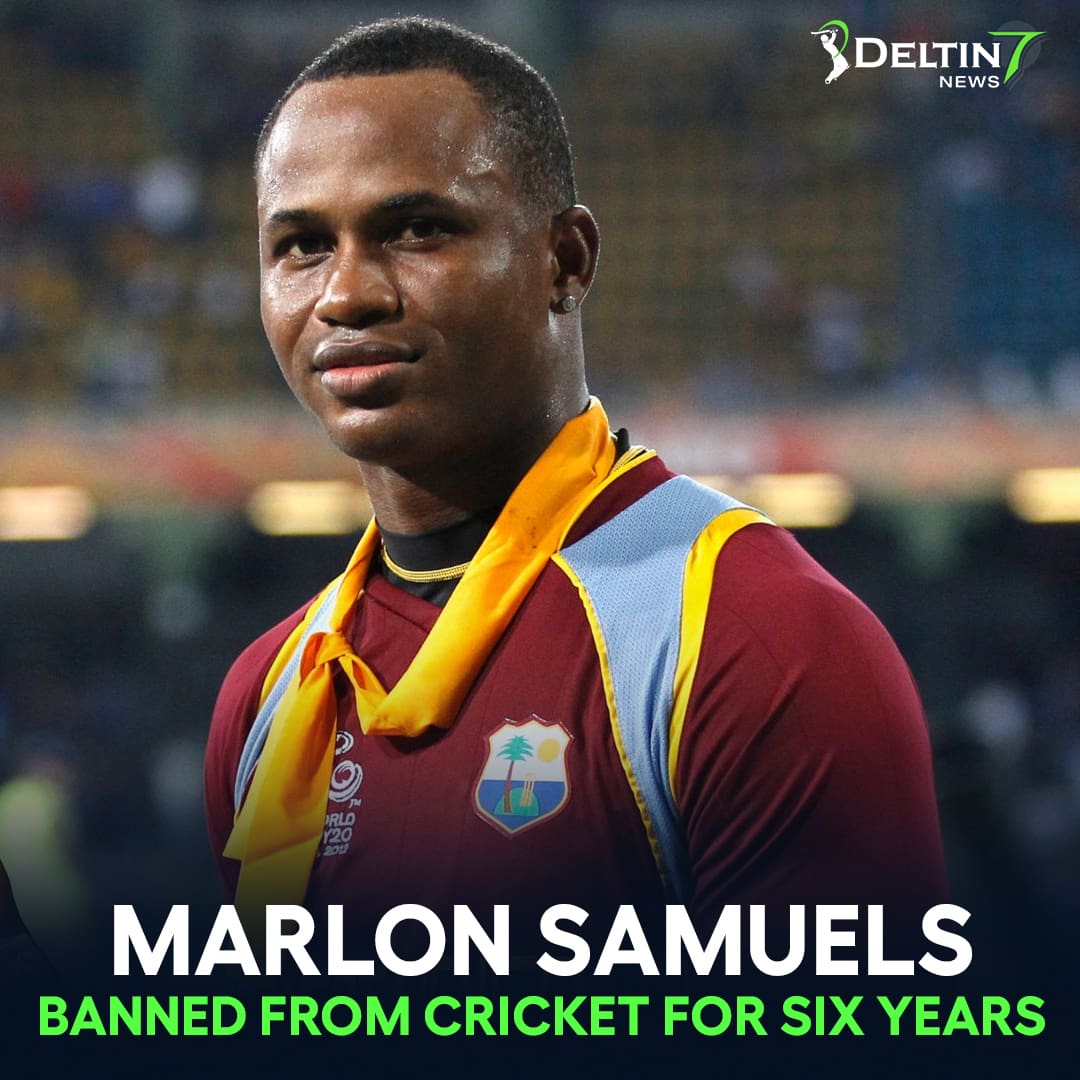
In a shocking turn of events, former West Indies cricketer Marlon Samuels has been handed a six-year ban from all forms of cricket by the International Cricket Council (ICC). The ban comes as a result of Samuels being found guilty of breaching the Emirates Cricket Board (ECB) Anti-Corruption Code. This article delves deeper into the details of the case, highlighting the charges against Samuels, the implications of the ban, and the significance of upholding anti-corruption measures in sports.
Marlon Samuels, a prominent figure in West Indies cricket, has had a long and eventful career spanning nearly two decades. He played 71 Tests and 274 limited-overs internationals for the West Indies, leaving his mark with notable performances in the T20 World Cup finals of 2012 and 2016. However, his achievements have been overshadowed by his recent involvement in a breach of the Anti-Corruption Code.
The charges against Samuels, brought forward by the ICC on behalf of the Emirates Cricket Board, revolve around his participation in the Abu Dhabi-based T10 League. The specific violations include:
An independent Anti-Corruption Tribunal, acting under the authority of the ICC, found Marlon Samuels guilty of all charges. The verdict, announced in August, resulted in a six-year ban from all cricket activities, effective from November 11, 2023. This severe penalty serves as a strong deterrent to other participants who may consider breaking the rules.
The ban has significant implications for Samuels, effectively putting an end to his cricketing career. Having already been retired from international cricket since 2018, this ban further solidifies his exit from the sport. It also tarnishes his legacy, overshadowing his achievements with a stain of corruption.
The ICC’s decision to impose a six-year ban on Marlon Samuels highlights the organization’s commitment to maintaining the integrity of the game. Alex Marshall, ICC General Manager – HR and Integrity Unit, emphasized that Samuels was well aware of his obligations under the Anti-Corruption Codes, having participated in numerous anti-corruption sessions throughout his career.
Cricket, like any other sport, relies on fair play, transparency, and integrity. Anti-corruption measures are crucial to preserving the authenticity of the game and ensuring a level playing field for all participants. The ban on Marlon Samuels serves as a reminder that any attempts to breach the Anti-Corruption Code will be met with severe consequences.
This is not the first time Marlon Samuels has faced allegations of corruption. In 2008, he received a two-year ban from the ICC after being caught on tape passing on match-related information to an Indian bookmaker during West Indies’ ODI series in India the previous year. Samuels managed to make a comeback in 2011, continuing to play Test cricket until 2016 and limited-overs internationals for two more years.
Despite the controversies surrounding his career, Marlon Samuels leaves behind an impressive cricketing record. He scored 11,134 international runs, including 17 centuries, across all formats. One of his standout performances was his 56-ball 78 in the World T20 final against Sri Lanka in 2012, which played a crucial role in West Indies clinching the title.
Marlon Samuels’ ban from cricket for six years sends a strong message about the zero-tolerance approach towards corruption in the sport. His violations of the Anti-Corruption Code have not only resulted in a significant personal consequence but also serve as a reminder to all participants that maintaining the integrity of the game is of utmost importance. The ICC’s commitment to upholding anti-corruption measures ensures that cricket remains a fair and transparent sport for generations to come.
Desert Vipers vs Dubai Capitals ,DV vs DC T20 Match Bold Prediction for Today's Exciting…
MI Cape Town vs Paarl Royals, MICT vs PR T20 Match Prediction, Today's Thrilling Match…
Rangpur Riders vs Khulna Tigers BPL T20, Today Match Prediction & Expert Team Review RGR…
Pakistan vs West Indies, PAK vs WI 2nd Test Match Prediction, Analysis & Thrilling Review…
Sydney Sixers vs Sydney Thunder BBLT20, Today Thrilling Match Prediction & Detailed Review SYS vs…
Australia vs England Women Ashes T20, Expert Match Prediction & Winning Insights AUS-W vs ENG-W…